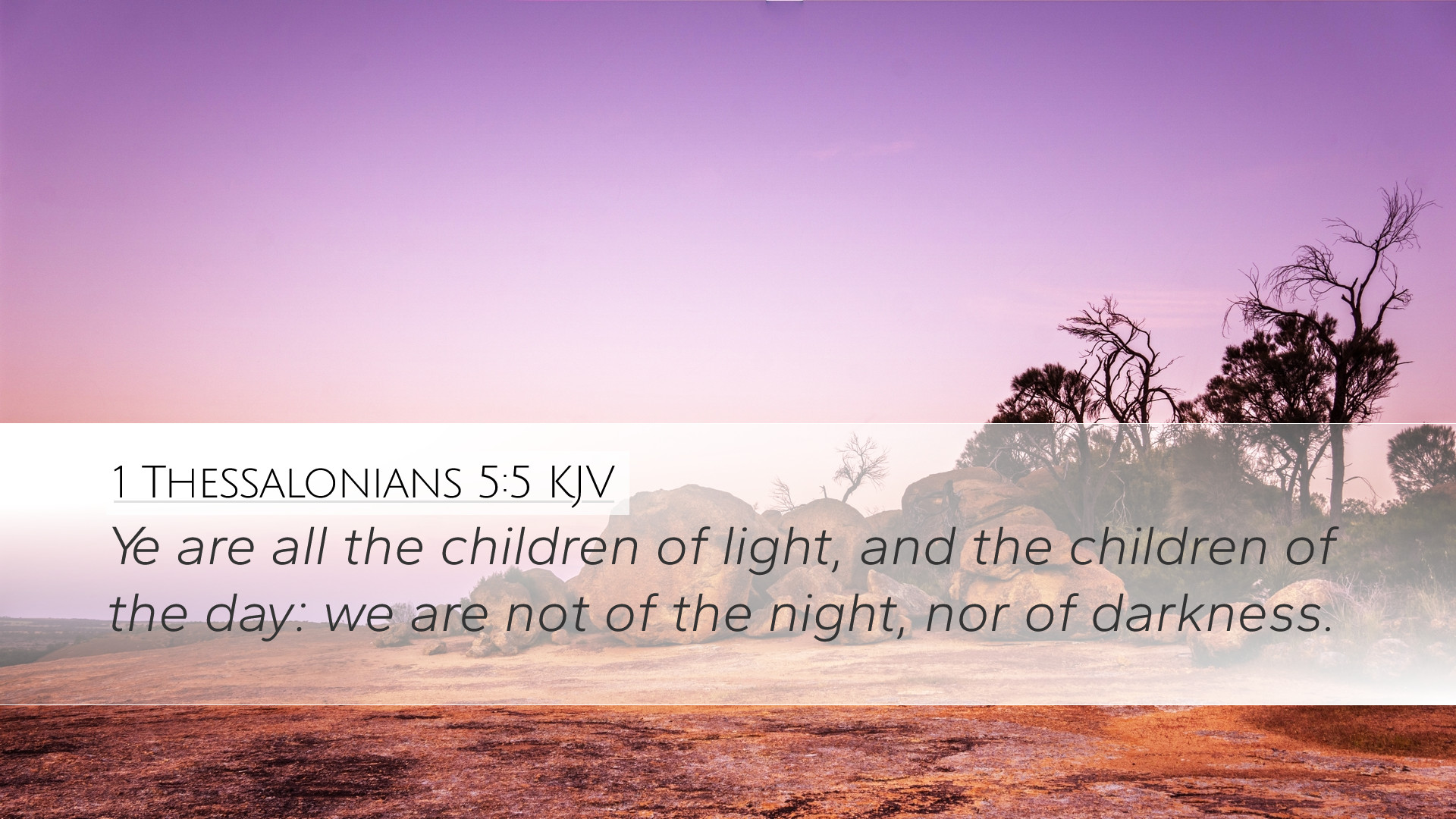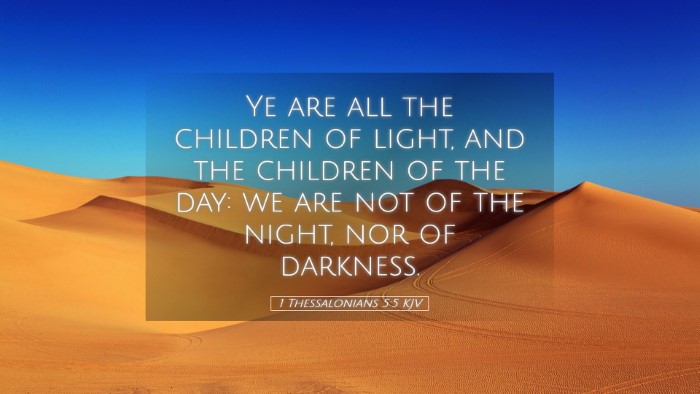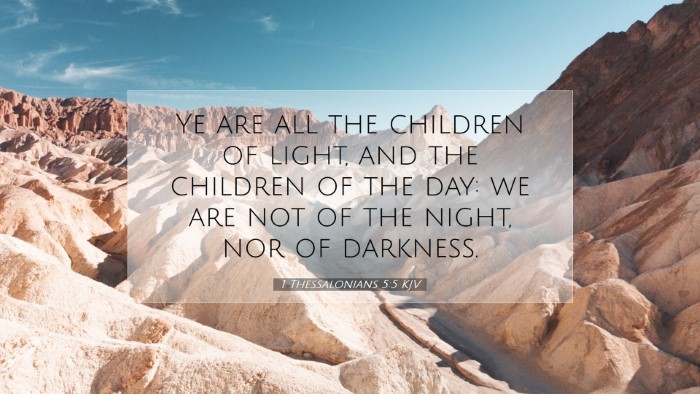Commentary on 1 Thessalonians 5:5
Verse Text: "For you are all children of light, and the children of the day: we are not of the night, nor of darkness." (1 Thessalonians 5:5)
Introduction
This verse from Paul's first letter to the Thessalonians encapsulates the identity and moral imperative that characterizes believers in Christ. The imagery of light and darkness is prevalent throughout Scripture and serves as a profound metaphor for spiritual truth and moral conduct. In this commentary, we will draw insights from esteemed public domain commentaries, particularly those of Matthew Henry, Albert Barnes, and Adam Clarke, to unpack the depth and significance of this verse.
Contextual Overview
Paul's epistle to the Thessalonians is often regarded as one of the earliest writings of the New Testament. It was penned during a time when the early Church faced persecution and confusion regarding the return of Christ. In chapter 5, Paul encourages the believers to remain alert and sober as they await the Lord’s coming, highlighting their distinct identity as children of light.
Exegesis of 1 Thessalonians 5:5
The apostle Paul contrasts the believers with those who dwell in darkness. He emphasizes that believers are not just passive recipients of God's light; they actively partake in it. This notion of being "children of light" reflects a transformative relationship with Jesus Christ, the Light of the World.
1. Children of Light
According to Albert Barnes, being a child of light indicates a spiritual rebirth and an inheritance of divine qualities. He elucidates that "children of light" entails not only receiving illumination from God but also embodying that light in one’s life. The Christian walk demands an exhibition of morality, truth, and righteousness befitting one's identity.
2. Contrast with Darkness
Matthew Henry notes the stark contrast Paul draws between light and darkness. Darkness represents ignorance, sin, and moral failure—an existence devoid of divine guidance. Paul’s assertion serves as a reminder that believers should steer clear of the pitfalls associated with a life estranged from God. The identity as children of light inherently comes with the call to reflect the attributes of Christ.
3. The Nature of Day and Night
Adam Clarke emphasizes the specific mention of day and night in this text. He posits that living as children of light means participating in the activities of the day—those of vigilance and hope—in stark opposition to the spiritual lethargy associated with night. Clarke points out that this distinction draws upon the Hebrew understanding of spiritual alertness and preparedness as seen throughout the Old Testament.
Theological Implications
This verse has significant theological implications for the doctrine of holiness. The call to be children of light implies a separation from sin and a pursuit of holiness. Believers are summoned to live as representatives of Christ, demonstrating His light to a world shrouded in darkness.
1. The Doctrine of Adoption
The concept of being called children of God relates closely to the doctrine of adoption. Barnes points out that this identity brings with it privileges and responsibilities. This privilege requires believers to conduct themselves in a manner worthy of their calling, leading others to the light of Christ.
2. Ethical Living
The inherent call to ethical living arises from this identity. Henry underscores that true light leads to actions that glorify God, making one’s life a beacon of hope. Thus, the exhortation in this passage encourages believers to be mindful of their conduct and the influence they impart on those around them.
Practical Applications
For pastors, students, theologians, and scholars, the implications of this verse extend beyond mere theological discourse into practical daily living:
- Awareness of Influence: Believers should consider the impact of their lives on others, ensuring that they are truth-bearers and light-sharers in their communities.
- Spiritual Vigilance: There is a call to remain spiritually alert, as Clarke notes. Recognizing the subtle forces of darkness in the modern world requires constant vigilance and discernment.
- Holistic Integration: This verse beckons believers to integrate their faith into all facets of life—work, relationships, and societal involvement—reflecting the light of Christ consistently.
Conclusion
In summary, 1 Thessalonians 5:5 offers a rich insight into the identity of believers as children of light. It encourages a lifestyle that is reflective of this identity, filled with moral clarity, ethical living, and an ever-present hope. Drawing upon the wisdom of Matthew Henry, Albert Barnes, and Adam Clarke, we recognize the profound calling to live in accordance with our status as children of the day, shunning the darkness that threatens to envelop the heart and mind. This verse serves as both an encouragement and a challenge, prompting individuals to embody their identity in ways that bring glory to God and reflect His love to a darkened world.


